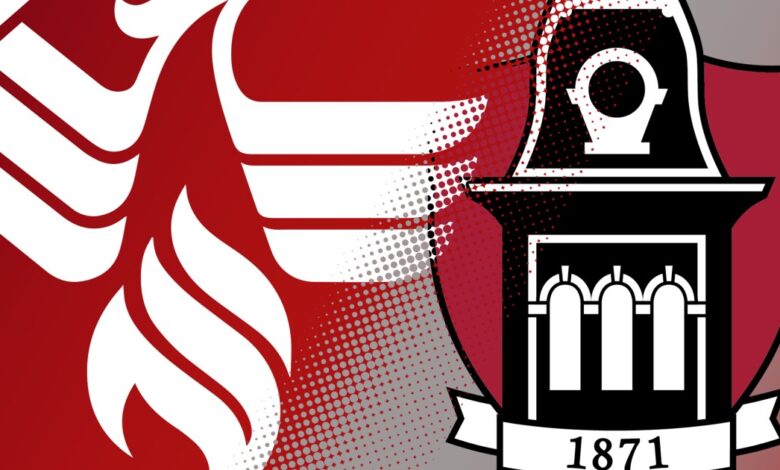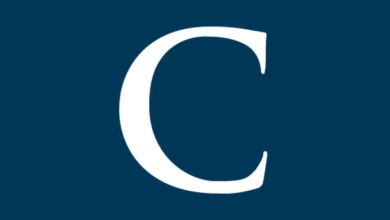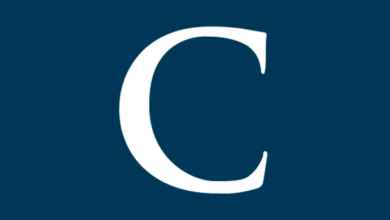What a Possible U. of Phoenix Sale Says About the State of Higher Ed

[ad_1]
The University of Arkansas System has confirmed that it’s eyeing a complete acquisition of what was once the premier mega-university in the country.
The for-profit in question, the University of Phoenix, has roughly 85,000 students, down from a peak of nearly half a million in 2010. Most of its courses are online, with a primary focus of serving adult learners.
Any purchase would be done through a newly created nonprofit affiliate, which would “support and facilitate” the transition of the University of Phoenix to nonprofit status, system spokesperson Nathan Hinkel confirmed. The Arkansas Times, which broke the news, reported that the price tag could sit somewhere between $500 million and $700 million. The system has not confirmed those estimates.
“The goal … is to advance the system’s mission of providing affordable, relevant education to a broad range of students, and introducing the UA System to new educational markets,” Hinkel wrote in a prepared statement to The Chronicle.
The system already bought a smaller for-profit — Grantham University — in 2021, creating the University of Arkansas Grantham. It then folded in its existing online arm, eVersity, last summer.
While many details, including the timing for a potential deal, remain unclear, four experts who spoke with The Chronicle say the news underscores the further dismantling of the for-profit market, and traditional institutions’ continued banking on online education as a funnel for new students and revenue — even though most campuses shuttered by the pandemic have reopened.
If a deal goes through, “This is the culmination of the era of the for-profits,” said Phil Hill, a partner at the ed-tech consultancy MindWires. “It’s not that there are no for-profits anymore … but it’s putting a real definitive cap on this decade-and-a-half decline of the for-profit sector. “
Downfall of for-profits
For years, for-profit institutions have faced both ideological and regulatory battles.
Bad press about deceptive marketing practices and poor post-graduate outcomes has largely soured public opinion of the sector. The University of Phoenix itself agreed to shell out $191 million in 2019 to settle a Federal Trade Commission complaint accusing the institution of advertising nonexistent partnerships with employers such as AT&T and Microsoft.
With a for-profit, “you’re enrolling at a school where the less they spend on actually serving you, the more they get to pocket,” said Robert Shireman, director of higher-education excellence and a senior fellow at The Century Foundation. So in many consumers’ eyes, attending a nonprofit institution “provides some protection.”
For-profits also have an increasing amount of red tape to navigate, said Eddy Conroy, a senior adviser with the education-policy program at New America. The recently revised 90-10 rule requires for-profits to draw at least 10 percent of their revenue from areas outside of Title IV financial assistance and military-education benefits. The latest Education Department regulatory agenda, posted in early January, also announced plans to revisit a “gainful employment” rule that would hold institutions accountable for their graduates’ abilities to pay off debt.
Basically, “for-profits no longer want to be defined as for-profit,” Conroy said.
Some of the more high-profile acquisitions include Purdue University’s acquisition of Kaplan University in 2017 to form Purdue Global, and the University of Arizona’s purchase of Ashford University in 2020 to create the University of Arizona Global Campus. If an acquisition of the University of Phoenix goes through, it would leave Grand Canyon University as the largest remaining for-profit institution.
(Grand Canyon has itself tried to shed its for-profit designation, and sued the Education Department in 2021 for rejecting its bid to be considered a nonprofit entity.)
University of Phoenix spokesperson Andrea Smiley told The Chronicle that the institution recognizes that the higher-ed landscape is changing, and that officials’ main priority is finding a solution that keeps — and expands — Phoenix’s mission to serve adult learners.
“Entities are always evolving; they have to because the marketplace changes. The environment that you’re in changes,” Smiley said. “We’ve seen significant success over the last five to seven years in serving the adult learner, and we’d like to see that success continue.”
A December 2021 article from Work Shift, a project of Open Campus Media, captured some of that growth. It reported that the University of Phoenix had been trimming its catalog of available programs to focus more on graduating its students and getting them into better-paying jobs, and that its official retention rate — which covers first-time, full-time students in bachelor’s programs — had risen to 41 percent, up from about 27 percent in 2017.
In some instances, acquisitions of online for-profits haven’t been clean breaks. In the University of Arizona’s case, for example, Ashford University’s owner, Zovio Inc., stayed on as an online-program manager for Arizona’s newly minted Global Campus (that arrangement prematurely ended last year). This would not be the case here, Hinkel confirmed in an email.
“The structure being considered, from what I understand, would not entail any ongoing relationship between University of Phoenix’s current ownership and the nonprofit,” he wrote.
The online-ed calculation
The University of Arkansas System’s interest in the University of Phoenix aligns with another trend, experts like Hill said: Public colleges or systems trying to quickly expand their online offerings, and extending their reach to nontraditional students — including adult learners — as undergraduate enrollment on the whole continues to fall.
The pandemic accelerated the adoption of online courses and programs at many institutions. And data shows that even with many in-person restrictions lifted, student interest in learning online remains strong. Recently released Fall 2021 Ipeds data analyzed by The Chronicle revealed the percentage of students enrolled only in distance education was nearly double the percentage in 2017 — 30.4 percent and 15.7 percent, respectively.
“Covid helped alert us to the fact that there are a lot of people who are still going to want in-person learning, but it also made people more comfortable with online as an option,” Shireman said. So universities, the University of Arkansas System included, are “trying to find ways to have larger-online footprints to help protect them against enrollment declines.”
Why the for-profit acquisition route, though? Most institutions have established an online presence in other ways: Many have contracted with private companies for online-program-management services, which can include everything from recruiting and marketing to tech support and software. In another approach, the University of North Carolina system is tapping $97 million in pandemic-recovery funding to form its own online-learning platform. Others, like the University of Florida, began their venture into online education with outside help, but now maintain smaller-scale, and fully in-house, operations.
Experts say acquiring a for-profit might feel less risky, and more streamlined.
“They’ve already got the infrastructure in place, and they’ve already got students in place,” said Dominique Baker, associate professor of education policy at Southern Methodist University. “A lot of these pieces can be appealing.”
The University of Arkansas System declined to say more about why it’s interested in a for-profit acquisition in particular. The system’s proposal for buying the for-profit Grantham University, though, spoke to its ambitions to seize a large proportion of the online market. “Higher education is in a period of disruption,” the proposal read. “We believe we are well positioned to take a bold step toward being the premier online institution serving working adults in the south.”
Outstanding questions
Apart from these initial musings, experts are waiting to learn more. Where will the financing come from? Will the University of Phoenix’s name be preserved? Who would be responsible in the case of future lawsuits or borrower-defense claims?
Baker wonders about quality assurance too. Who will teach these courses? Are University of Arkansas System faculty members involved in these discussions?
“I see value in online education,” she said. “My concerns are around: How do we deliver that education? And what is our goal? … It’s the method of how we’re doing this that I think is incredibly important. ”
[ad_2]
Source link






